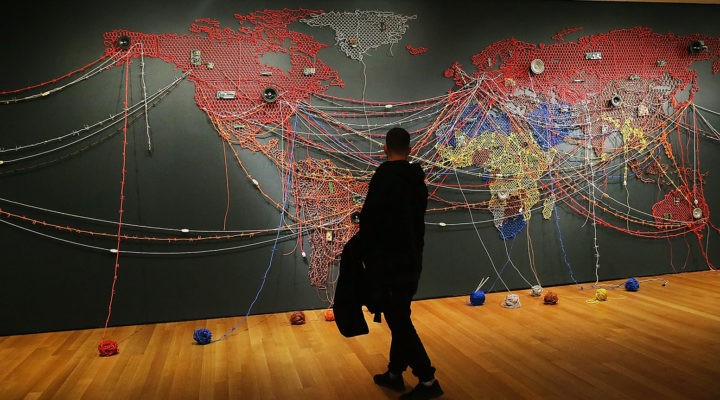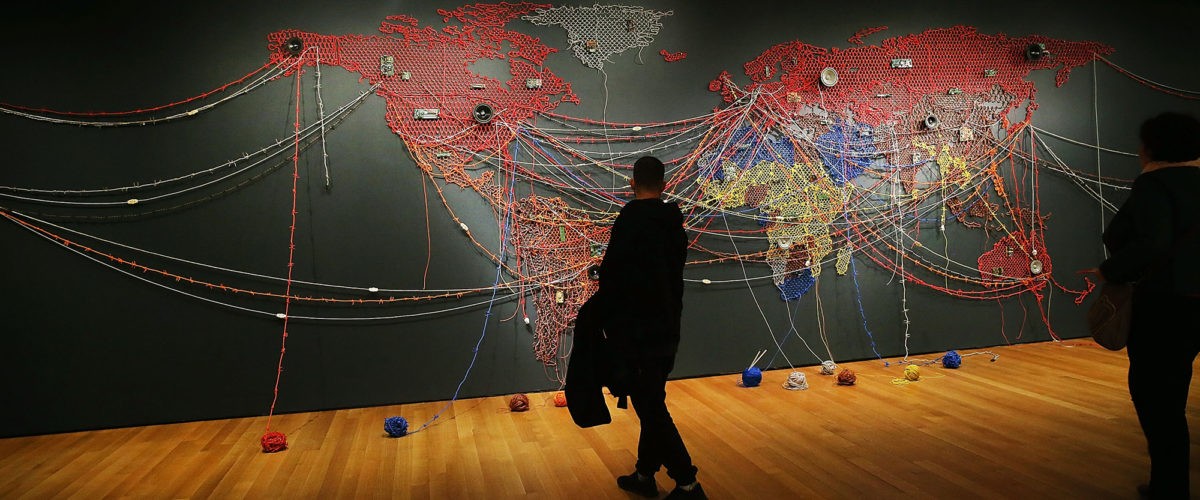Gridlock on effective immigration reforms will continue until politicians set aside partisan differences to focus on the systemic drivers of global migration, said David Cronin, a senior policy and legislative specialist with Catholic Relief Services.
Domestic advocacy groups, migrants, refugees, foreign governments and even the United Nations have been perplexed by the fluctuations in immigration strategies employed by the Trump and Biden presidencies, Cronin added during a recent webinar hosted by the Center for Migration Studies.

David Cronin
“When we think about pendulum swings of policy under the Trump administration, they cut off all funding to Central America. Under the Biden administration, they have tried to implement a root-causes strategy. In Central America, we cannot have pendulum swings in policy. It creates too much confusion.”
Immigrant advocacy groups in the meantime should impress on federal lawmakers that consistent, balanced and humane immigration reforms can contribute to lower migration levels, save taxpayer dollars and contribute to national security, he said.
“What we need from government is long-term, bipartisan congressional and administration commitment to investing in communities, to partnering with governments, to engaging at that hemispheric level to ensure that communities and families and individuals can find opportunities in their home countries.”
Advocates also should emphasize the humanity of migrants and refugees and appeal to lawmakers for reforms, said Giulia McPherson, executive director of the Global Campaign for Education-US.

Giulia McPherson
“We want to humanize these stories, these individuals, rather than getting caught up in a rhetoric that becomes very partisan and complicated,” she said. “A lot of these policies can get wrapped up in complicated mechanisms that are hard for advocates to comprehend, and certainly those on the receiving end to comprehend.”
Ups and downs in the nation’s refugee resettlement program demonstrate the confusion and pain generated by presidential administrations with widely different priorities McPherson said.
With passage of the U.S. Refugee Act in 1980, the nation received 231,000 refugees who, unlike asylum seekers and other migrants, undergo a years-long United Nations vetting process outside the U.S. and are granted the right to work and pathways to citizenship upon arrival.
“During the Trump administration, we saw those numbers reach a historic low, and that was in fiscal year ‘20 when the presidential determination was set at 18,000, and the number of refugees that arrived or admitted into the United States in that fiscal year was around 11,000,” she explained.
The nation’s refugee resettlement infrastructure was eroded during Trump’s presidency but has begun to rebound under Biden, who vowed to restore the program. This year, 74,000 refugees have resettled in the U.S. with the target being 125,000, McPherson said.
And the need is tremendous as climate disasters, economic crises and war are expected to create 2.9 million refugees in 2025, she added. “The number that the U.S. government is able to resettle is a drop in that bucket, but the U.S. government still is a leader globally in terms of refugee resettlement and being able to offer this durable solution, this form of protection to refugees who are most in need.”

Mark Hugo Lopez
The failure of U.S. immigration policy has not gone unnoticed by Americans, especially when it comes to border security, said Mark Hugo Lopez, director of race and ethnicity research with Pew Research Center.
Lopez shared findings from a 2024 study showing only 18% of U.S. adults think the U.S. is effectively handling the number of migrants at the southern border.
The share who believe the U.S. is doing a bad job has reached 80%, including 45% who say it is doing “a very bad job.” Republicans, at 89%, said government is handling immigration poorly, compared to 73% of Democrats.
To fix the problem, 60% of Americans said the number of immigration judges and staff should be increased to streamline the asylum process, while 56% said creating more legal immigration opportunities would improve the situation. Many (56%) said safe and sanitary conditions should be provided to migrants arriving in the U.S.
But Lopez added the importance Americans place on immigration as a priority is strongly influenced by party affiliation. “You will find that among Trump supporters, immigration usually is ranking in the top three to five issues. For Harris supporters or Biden supporters, it is usually much lower on the list — in fact, pretty far down the list as the top issue. So, Democrats and Republicans see the issue of immigration differently for this year’s election cycle.”


